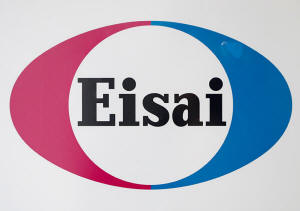Japan's Eisai says US introduction of Alzheimer's drug Leqembi slower
than expected
 Send a link to a friend
Send a link to a friend
 [March 07, 2024]
TOKYO (Reuters) - Japanese drugmaker Eisai on Thursday said the
distribution of its Alzheimer's drug Leqembi in the United States has
proceeded slower than it expected. [March 07, 2024]
TOKYO (Reuters) - Japanese drugmaker Eisai on Thursday said the
distribution of its Alzheimer's drug Leqembi in the United States has
proceeded slower than it expected.
The company expects to reach 90% of its target for integrated delivery
networks (IDNs) used to administer the drug in the U.S. in the fiscal
year ending this month, Chief Executive Haruo Naito said.
"In the United States, in comparison to what we have expected, it may be
taking slightly more time," Naito said at a briefing in Tokyo. "We are
confident that we are on a good trajectory."
Leqembi is an antibody designed to remove sticky deposits of a protein
called amyloid beta from the brains of Alzheimer's patients. It is the
first treatment shown to slow progression of Alzheimer's when
administered in the earlier stages of the disease.
The drug was approved in the U.S. and Japan last year, and it is under
review in Europe. Eisai is aiming to introduce Leqembi in China this
year following approval by regulators there in January.
[to top of second column]
|

The logo of Eisai Co Ltd is displayed at the company headquarters in
Tokyo, Japan, March 8, 2018. REUTERS/Issei Kato/File Photo
 The drug's debut in Japan has
progressed smoothly, Naito said, and the company is ramping up
production ahead of a planned July launch in China.
The Chinese system for diagnosis and treatment of Alzheimer's is
unique and could serve as a model for expansion in India along with
other markets in Asia and Africa, Naito said.
(Reporting by Rocky Swift; Editing by Christopher Cushing)
[© 2024 Thomson Reuters. All rights reserved.]This material may not be published,
broadcast, rewritten or redistributed.
Thompson Reuters is solely responsible for this content. |